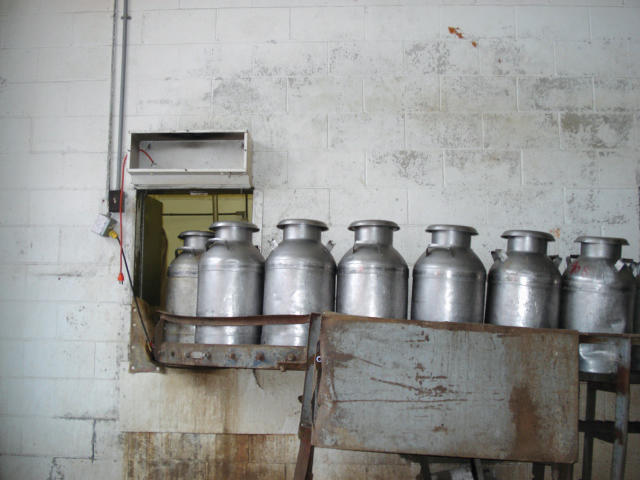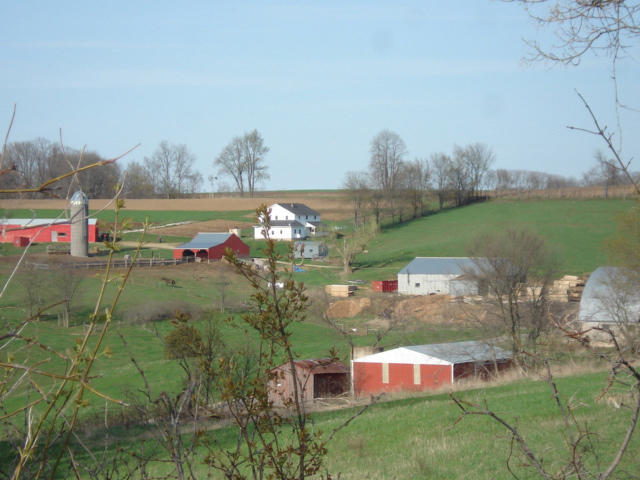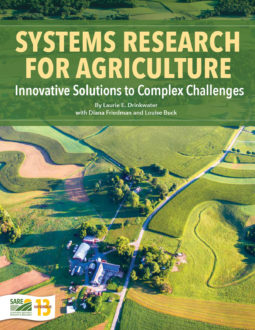
Systems-based research projects often involve a research team tackling a topic from a variety of disciplinary perspectives, with a strong focus on collecting quantitative data. But that doesn’t mean that a solo investigator can’t take on rigorous systems research involving more qualitative approaches.
In Wisconsin, SARE-funded doctoral student Caroline Brock did just that, conducting an in-depth study on structural divergence in the dairy sector and farm decision-making related to systems adoption. In her thesis, published in 2010, she used a combination of quantitative survey data and qualitative, in-depth interviews to explore how organic, Amish and conventional dairy farmers in Wisconsin made decisions about which types of farming system they would adopt.
One early challenge facing Brock, given that Wisconsin has over 10,000 dairy farms, was creating system boundaries. She focused on large-scale conventional, mid-sized conventional, management-intensive rotational grazing (MIRG) and organic systems. This choice was partly based on her analysis of data from an extensive state-wide survey of dairy farmers performed in 2003 and 2004. The survey showed that the state’s dairy sector had undergone significant structural divergence in terms of size and management systems during the previous 25 years. In particular, larger confinement dairy operations, organic and MIRG systems had become more important. In addition, a growing number of Amish families were operating dairy farms, making them important on the Wisconsin farm landscape. Brock’s “take-off point” was that “Wisconsin farming systems’ divergence is an expression of farm household decision-making,” she said, and she wanted to better understand the complex forces that shaped those decisions.

To do that, she used the survey data and other sources to identify 60 dairy farmers willing to sit down for an extensive, structured interview about farm decision-making. Brock noted that the approach was motivated in part by the common-sense observation that these farming choices involve both lifestyle and financial considerations.
The combination of statistical data and wide-ranging interviews opened a revealing window into the complex forces shaping farm family choices. In particular, Brock found that concepts called “oikonomia” and “bounded rationality” helped explain dairy farmer decisions.
“Oikonomia is an integrated approach to decision-making that stems from the origins of the word economics—oikos, which translates as household. Oikonomia incorporates social, spiritual and ecological as well as economic dimensions.” Brock wrote in her thesis. One focus was on why farmers chose or declined to adopt organic systems. She targeted her study on “pasture- based and smaller conventional farmers as they may be the most likely to adopt organic practices.”
“Farming systems choices are, in fact, fundamental lifestyle choices, especially for the modest-sized operations of southwestern Wisconsin, where the family contributes the majority of the labor and spends most of their time as a family on their farm,” she said. “It is the integrated essence of the family-farm experience, where work, consumption, leisure, relationship to others, the environment and spirituality all occur largely in the same place.”
For instance, she found that Amish farmers’ spiritual or cultural beliefs might lead them to make different choices about adopting specific dairy practices compared to those made by a non-Amish farmer facing similar issues. She also found that the concept of bounded rationality was useful for incorporating the idea of internal and external constraints, which may deter decision-makers from fully living out these oikonomia values.
